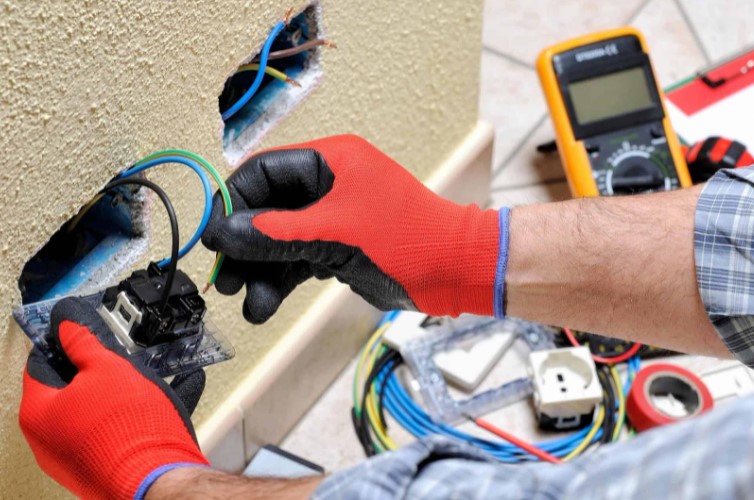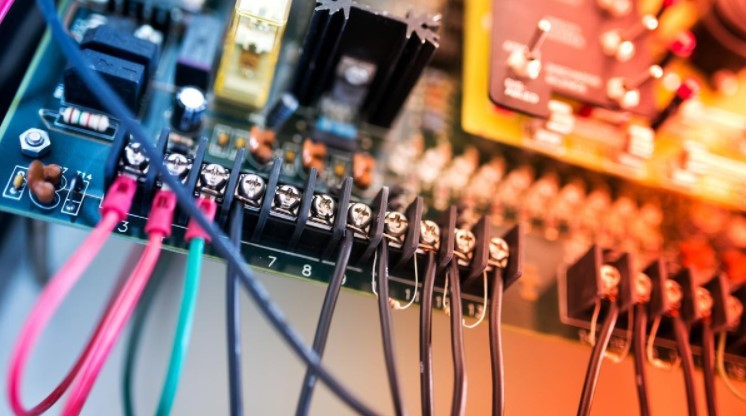
It is important to remember that electricians are essential for modern life, mainly because we cannot function without power.
Of course, technical understanding is risky, which is why an individual who wishes to become a professional must undergo strict qualifications and extensive training.
First, you should know that electrician is a skilled professional who can handle numerous problems regarding power.
As soon as you enter here, you will understand the requirements you should follow to become a professional electrician.
Their primary responsibility is to repair, maintain and install electrical equipment you use for commercial, residential, and industrial purposes.
Everything depends on licensing and experience, but we can differentiate three types you can choose:
- Journeyman – It is the basic level, which means a professional has completed an apprenticeship. At the same time, they must get a proper license for operating. They can work independently, but they cannot offer training to apprentices, pull permits, and lead an entire site.
- Master Electrician – After two years of experience, a journeyman can become an expert. They can offer training to apprentices, lead jobs and handle teams. Of course, they should comply with state requirements, which means passing a thorough examination.
Independent Contractors
When you gain a master’s degree and licensing, you can become a small business owner. It means you can gather a team to handle small to significant jobs. However, it would be best to have an insurance level, which is an important consideration to remember.
Generally, you can specialize your independent contracting in these areas:
- Residential – Similarly, as the name suggests, you will focus on maintaining, repairing, and installing systems and wiring in small apartment buildings and households.
- Commercial – It is a more complex option than residential because you must handle systems and issues in commercial buildings. Since these buildings use different types of power, you should undergo more training during your apprenticeship to become a commercial expert.
- Industrial – Finally, you can work in facilities that use large machinery and equipment. We are talking about power plants, manufacturing facilities, chemical plants, etc. These buildings will require more significant electrical needs than commercial and residential counterparts. Therefore, you must train under a licensed industrial electrician as both journeyman and apprentice to get this qualification.
Steps for Becoming an Electrician

If you wish to become a licensed professional, you should follow specific steps.
-
Gain High School Diploma
Before starting the process, you should obtain a high school degree. You can find a wide array of schools created explicitly for future electricians, which means you should think about relying on specific skills.
The most important subjects that will offer you the information you can use in the future include:
- Trigonometry and Algebra – Most electricians, primarily industrial and commercial experts, will need math skills to calculate the force of the electrical current and wiring lengths and measure the circuit’s angle.
- Physics – At the same time, you should obtain fundamental physics and scientific concepts that will help you understand each step along the way.
- Mechanical Drawing – It is helpful for electricians who wish to handle designs and create systems in commercial, residential, or industrial structures and buildings.
- English – Finally, you should learn the technical language and terms, which will help you read and analyze various documents you will read.
We recommend you to watch this video: https://www.youtube.com/watch?v=-AlsjIbu7Sc to learn everything about being an electrician before you make up your mind.
-
Vocation-Technical or Trade School
Although it is not required for an electrician, it can provide additional training and aid. That way, you are more likely to obtain certification and a job because you will learn every aspect you need.
Whether you wish to attend a four-year university to study technology or three-year college does not matter. You will get comprehensive experience in both theoretical and practical aspects.
As a result, you can create a foundation and introduce yourself to basic principles, which will help you during your apprenticeship.
Besides, most licensing regions and states will allow you to substitute hours of experience with hours spent during formal education. That way, you can become a journeyman faster than usual.
According to numerous factors, one year of formal education is equivalent to one thousand hours of practical experience. You can substitute two years of training, which means two thousand hours.
Of course, everything depends on the technical school you choose. Still, you may complete the journeyman program with it and comply with licensing requirements. You can learn more about licensing by visiting Wrightstone Electric official website.
-
Apprenticeship
Whether you decide to obtain technical school or start initially, it does not matter because the first step is to complete an apprenticeship. You can find it in numerous ways, such as:
- Trade Schools – Most technical schools will offer you both job placement and apprenticeship, the simplest way to obtain the experience.
- Union – You can also take advantage of various unions, including the JATC or the Joint Apprenticeship & Training Committees, located in most major cities across the US. That way, a union will choose a local employer while hosting various lab-based technical training you may need.
Non-Union – Finally, you can find an apprenticeship without a union. Still, you should complete an aptitude test to help them determine your math skills and reading comprehension. Besides, you must undergo a job interview, pass a drug test, and other specific requirements depending on the contractor you choose.
